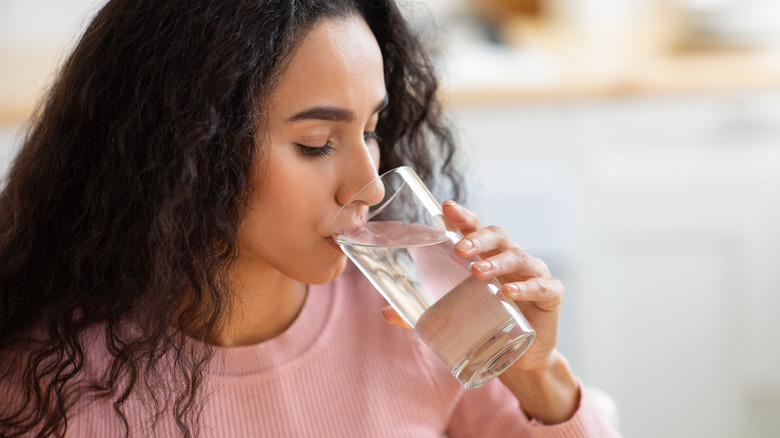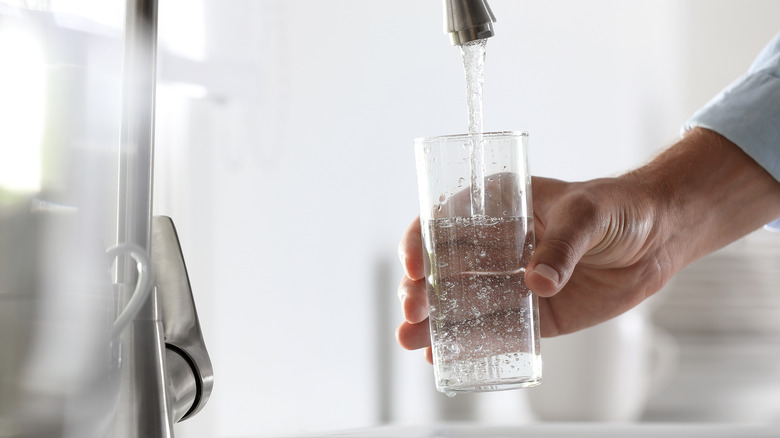Can Staying Hydrated Reduce The Risk Of Chronic Diseases And Early Death?
Good hydration lubricates your joints, prevents infection, and can improve your mood, according to the Harvard T.H Chan School of Public Health. And a new study in eBioMedicine says that maintaining proper levels of hydration might even help ward off some diseases and early death. The study recruited people in the late 1980s who were aged 45 to 66, measuring their hydration levels through their blood sodium. The researchers also calculated their biological age based on certain biomarkers by looking at their cardiovascular, renal, metabolic, respiratory, and immune systems. They followed up 25 years later with more than 11,000 of the participants to see who aged faster or had a chronic disease.
People with blood serum sodium levels of 142 mmol/l (millimoles per liter) or higher were 50% more likely to have a higher biological age compared to those with optimal levels of 138-142 mmol/l. They also had a higher risk of heart failure, stroke, chronic lung disease, diabetes, and dementia. People with lower blood sodium also had an increase in cardiovascular disease and mortality, and the researchers suggested that some diseases are associated with an electrolyte imbalance.
Hydration doesn't necessarily prevent an early death
Researchers from the study acknowledged that because the study was observational, they couldn't determine if dehydration caused chronic diseases or premature death. They also recognized that there could have been other factors that contributed to their health conditions.
Dr. Lawrence Appel, director of the Welch Center for Prevention, Epidemiology and Clinical Research at Johns Hopkins University, told NBC News that the relationship between hydration and avoiding chronic disease remains unclear. If someone takes diuretics to control blood pressure, the blood sodium level might be high. The results of the study might not be about hydration but about the impacts of dehydration. Dehydration might hasten aging because it puts more stress on the kidneys, especially if you replace water with sugary drinks.
The National Council on Aging says older adults can get dehydrated because they tend to get less thirsty and take medications that can dehydrate the body. According to NBC News, hydration needs might differ according to your environment and activity level. In addition to getting your hydration from fluids, you can stay hydrated through foods by eating vegetables like celery and cucumber and fruit like watermelon.


